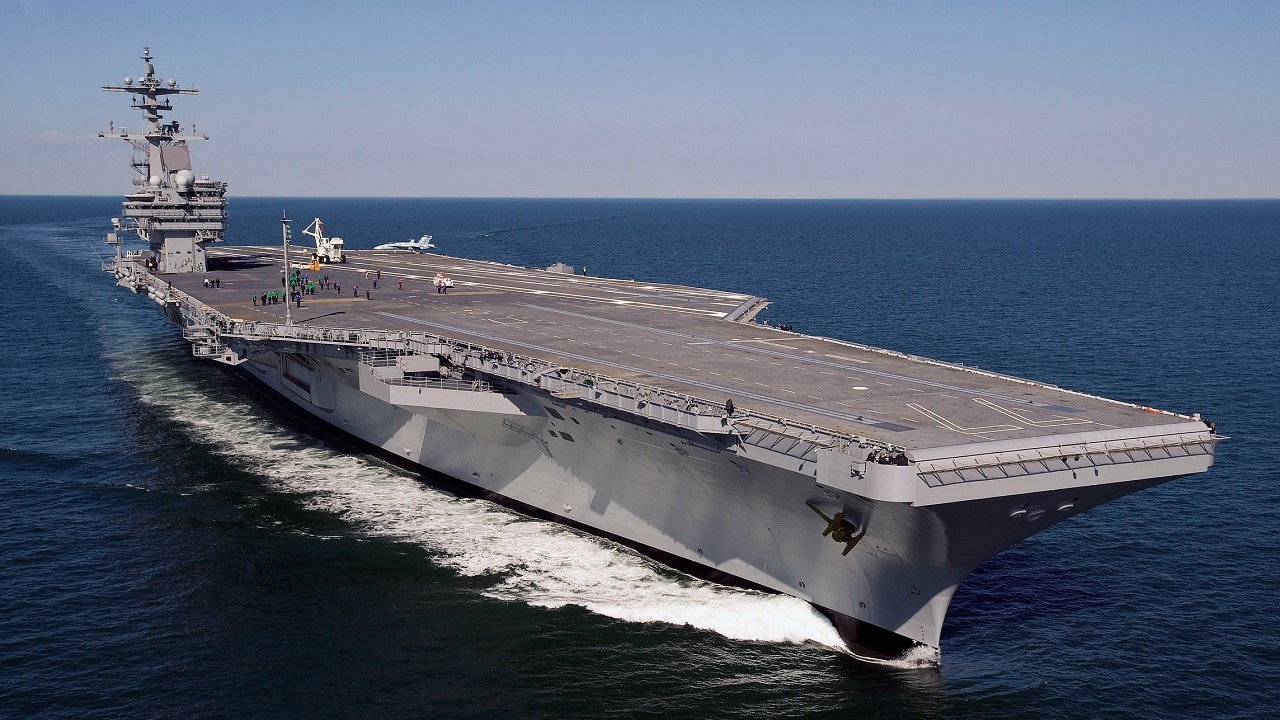The USS George H.W. Bush was the very last of the Nimitz-class aircraft carriers. And until the new Ford-class carries prove they are one-hundred percent effective, this is the carrier to beat: Can you believe that it has been a hundred years since the first U.S. Navy aircraft carrier? The USS George HW Bush – the last ship of the Nimitz-class carrier line – recently held a commemoration to celebrate one hundred years of carriers. In March 1922, the USS Langley was commissioned as the first Navy carrier. The Langley didn’t make it past World War Two – it was attacked and mortally wounded by the Japanese in 1942- and later scuttled by the Americans. But the George H.W. Bush exemplifies naval aviation and is considered one of the most powerful ships in the world.
What Was the Original Idea Behind the Aircraft Carrier?
Carrier aviation has come a long way since the Langley was commissioned.
“The idea back then was just experimental. How can we harness air power at sea to give us control of the seas as well as control of the air,” said Vice Admiral Kenneth Whitesell, commander of naval air forces, according to WAVY News in Norfolk, Virginia. “The impressive nature of how we have evolved over the 100 years now turns us into a formidable war platform,” Whitesell said.
USS George H.W. Bush – A Busy Airport on the Sea
The George H.W. Bush is a floating city with 6,000-sailors and marines. The aircrew alone has a crew of 160-officers and 2,500 sailors. The ship even has its own post office. George H.W. Bush is 1,092 feet and long displaces over 100,000 tons, making it one of the world’s largest naval ships.
The Bush has a different shape with a radar tower that is located in another position compared to other carriers in the Nimitz-class. These changes have made it more likely to evade enemy radar.
An Impressive Fleet of Aircraft
It can carry 56-airplanes including the F/A-18A/C and F/A-18E/F Super Hornets, the EA-6B Prowler, and the E-2C Hawkeye.
Up to 15 helicopters are on board such as the Sikorsky SH-60F, HH-60H Seahawk, and SH-60B Seahawk.
It has four C13-2 steam catapults and three mk7 mod 3-type arrester cables so the carrier can launch and recover aircraft quickly.
An aircraft can launch once every 20-seconds.
USS George H.W. Bush – Weapons and Nuclear-power
The carrier comes with a full complement of sea-launched missiles including antiaircraft weapons and a close-in weapon system to fight off enemy cruise missiles.
It’s about three football fields long. Two nuclear-powered reactors provide propulsion to four turbines and four shafts for a top speed of 30-knots. It has five different kinds of radar and sensors on board.
The Bush was commissioned in 2009 and the navy hopes it can serve into the 2050s. The Bush has been instrumental in the war on terror as its airplanes have bombed ISIS positions in the Middle East since 2014.
It Does Take Substantial Amounts of Maintenance
The $6.5 billion carrier endured 30-months of maintenance that began in 2019 in Norfolk, and it was ready for missions again in the summer of 2021. The long period had to do with Covid-19 and additional required work on submarines in Norfolk.
Technicians worked to modernize and maintain the Bush with shaft and propeller overhauls plus rudder refurbishment. That job required an amazing 1.3 million man days of work. It got a clean bill of health after the drydocking.
The Bush is an epitome of combat power. Carriers are immensely valuable to the United States Navy despite these long maintenance periods. The Bush exemplifies 100-years of aircraft carrier history, and it will still make positive headlines as it extends its service life. The Bush’s call sign is “Avenger,” named after the kind of airplane that the president flew in World War Two. That is an apt nickname for this formidable carrier.
Now serving as 1945’s Defense and National Security Editor, Brent M. Eastwood, PhD, is the author of Humans, Machines, and Data: Future Trends in Warfare. He is an Emerging Threats expert and former U.S. Army Infantry officer. You can follow him on Twitter @BMEastwood.

